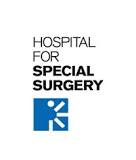Scleroderma Lung Study III - Combining Pirfenidone With Mycophenolate
| Status: | Recruiting |
|---|---|
| Conditions: | Lung Cancer, Pulmonary, Pulmonary, Dermatology, Dermatology, Dermatology |
| Therapuetic Areas: | Dermatology / Plastic Surgery, Oncology, Pulmonary / Respiratory Diseases |
| Healthy: | No |
| Age Range: | 18 - Any |
| Updated: | 4/6/2019 |
| Start Date: | November 28, 2017 |
| End Date: | May 2021 |
| Contact: | Grace D Ibrahim |
| Email: | GIbrahim@mednet.ucla.edu |
| Phone: | (310) 206-0396 |
Scleroderma Lung Study III (SLS III): Combining the Anti-fibrotic Effects of Pirfenidone (PFD) With Mycophenolate (MMF) for Treating Scleroderma-related Interstitial Lung Disease
A Phase II multi-center, double-blind, parallel group, randomized and placebo-controlled
clinical trial addressing the treatment of patients with active and symptomatic
Scleroderma-related interstitial lung disease (SSc-ILD).
clinical trial addressing the treatment of patients with active and symptomatic
Scleroderma-related interstitial lung disease (SSc-ILD).
A Phase II multi-center, double-blind, parallel group, randomized and placebo-controlled
clinical trial addressing the treatment of patients with active and symptomatic
Scleroderma-related interstitial lung disease (SSc-ILD). Patients will be randomized in a 1:1
assignment to receive either oral mycophenolate mofetil (MMF) and a placebo (Plac) or a
combination of oral MMF and oral pirfenidone (PFD), with both regimens administered for 18
months. The primary hypothesis is that the rapid onset and anti-fibrotic effects of PFD,
which have been observed in the treatment of Idiopathic Pulmonary Fibrosis (IPF), will
complement the delayed antiinflammatory and immunosuppressive effects of MMF, to produce a
significantly more rapid and/or greater improvement in lung function over time than occurs in
patients receiving control therapy with MMF and Plac.
clinical trial addressing the treatment of patients with active and symptomatic
Scleroderma-related interstitial lung disease (SSc-ILD). Patients will be randomized in a 1:1
assignment to receive either oral mycophenolate mofetil (MMF) and a placebo (Plac) or a
combination of oral MMF and oral pirfenidone (PFD), with both regimens administered for 18
months. The primary hypothesis is that the rapid onset and anti-fibrotic effects of PFD,
which have been observed in the treatment of Idiopathic Pulmonary Fibrosis (IPF), will
complement the delayed antiinflammatory and immunosuppressive effects of MMF, to produce a
significantly more rapid and/or greater improvement in lung function over time than occurs in
patients receiving control therapy with MMF and Plac.
Inclusion Criteria:
1. Age ≥18 yrs
2. Scleroderma as determined by the 2013 American College of Rheumatology (ACR)/European
League Against Rheumatism (EULAR) classification criteria.
3. Grade ≥2 on the Magnitude of Task component of the Mahler Modified Dyspnea Index
4. FVC-% of ≤85% at both screening and baseline visits
5. Onset of the first non-Raynaud manifestation of SSc within the prior 84 months.
6. Presence of any ground-glass opacification (GGO) on thoracic HRCT
7. Repeat FVC-% at the baseline visit within 10% of the FVC-% value measured at screening
and ≤85%. If these criteria are not met, a repeat FVC-% may be obtained within 7 days
and the subject may qualify for randomization if the repeat FVC-% agrees within 10% of
the FVC-% obtained at screening.
Exclusion Criteria:
1. Disease features supporting the primary diagnosis of another connective tissue disease
such as rheumatoid arthritis, systemic lupus erythematosus or mixed connective tissue
disease (Features consistent with a secondary Sjogren syndrome or
scleroderma-associated myopathy will be allowed).
2. FVC-% of <45% at either screening or baseline.
3. Forced Expiratory Volume in the first second (FEV1)/Forced Vital Capacity (FVC) ratio
<0.65 at either screening or baseline.
4. DLCOHb-% of <30% at screening or <25% at baseline.
a) All participants with a DLCOHb-% between 30 to 40% must have pulmonary artery
pressures documented by either echocardiogram, right heart catheterization or magnetic
resonance imaging in order to be considered for inclusion.
5. Diagnosis of clinically significant resting pulmonary hypertension requiring treatment
as ascertained prior to study evaluation or as part of a standard of care clinical
assessment performed outside of the study protocol.
6. Evidence of uncontrolled congestive heart failure, unstable ischemic heart disease,
history of pulmonary embolism, or cardiac arrhythmia requiring chronic
anticoagulation.
7. Clinically significant abnormalities on HRCT not attributable to SSc
8. Hematologic abnormality at screening including:
1. Leukopenia (white blood cells [WBC] <4.0x10^3/µl).
2. Thrombocytopenia (platelet count <150.0x10^3/µl).
3. Clinically significant anemia [Hemoglobin (Hgb) <10.0 g/dl].
Participants with an identified and correctable etiology may be eligible if repeat
testing within the maximal 90-day screening period meets all criteria.
9. A diagnosis of chronic liver disease or abnormal baseline liver function test (LFTs)
or total bilirubin that are >2.0 x upper normal limit
10. Serum creatinine >2.0mg/dl
11. History of recurrent aspiration, uncontrolled heartburn, or gastroesophageal reflux
disease (GERD) with a reflux scale score of >1.00 as determined by a UCLA Scleroderma
Clinical Trial Consortium Gastrointestinal Scale (UCLA SCTC GIT), Version 2.0.
Participants with uncontrolled heartburn or GERD that is amenable to medical
management may be eligible if repeat testing within the maximal 90-day screening
period meets this criteria.
12. Known achalasia, esophageal stricture or esophageal dysfunction sufficient to limit
the ability to swallow medication.
13. Pregnancy (as documented by blood test) and/or breast feeding
14. If of child bearing potential (a female participant < 55 years of age who has not been
postmenopausal for ≥ 5 years or who has not had a hysterectomy and/or oophorectomy),
failure to employ two reliable means of contraception which may include surgical
sterilization, barrier methods, spermicidals, intrauterine devices, and/or hormonal
contraception, unless the participant chooses abstinence (to avoid heterosexual
intercourse completely). If a subject chooses abstinence, then a second reliable means
of contraception is not needed.
15. Prior use of potential disease modifying antirheumatic drugs (DMARDs) according to the
following exposure rules:
1. Use of oral cyclophosphamide (CYC), MMF, azathioprine or other oral or short
half-life DMARDs (as detailed in Protocol Section 7.5.1a) for more than 12 weeks
in the past six months.
2. Treatment with three or more intravenous doses of CYC, Rituximab or other
intravenous or injectable DMARDs (as detailed in Protocol Section 7.5.1b) in the
past year.
3. More distant history of treatment with a DMARD is allowed as long as the patient
has a new diagnosis/new episode of active SSc-ILD since stopping that treatment
and meets the criteria noted in 15a or 15b. .
16. Use of CYC, MMF, azathioprine, Rituximab or other DMARD (as defined in Protocl Section
7.5.1a&b) in the 30 days prior to their baseline visit unless the patient is on MMF
and the responsible physician indicates that continued use s in the best clinical
interest of the patient.
17. Active infection (lung, ulcers or elsewhere) whose management would be compromised by
immunosuppression.
18. Other serious concomitant medical illness (e.g., active malignancy within the past 5
years other than surgically-removed local skin cancer such as a basal cell carcinoma),
chronic debilitating illness (other than SSc), unreliability or drug abuse that might
compromise the patient's participation in the trial.
19. Current use, or use within the 30 days prior to their baseline visit, of prednisone
(or equivalent) in doses >10 mg/day.
20. Smoking of cigars, pipes, or cigarettes during the past 6 months.
21. Use of contraindicated medications, including medications with putative
disease-modifying properties within the past month, moderate or strong inhibitors of
cytochrome P450 (CYP) isozyme 1A2 (CYP1A2) (note ciprofloxacin allowed up to a dose of
500 mg twice daily), and moderate inducers of CYP1A2 (such as tobacco smoke,
montelukast or phenytoin). See Protocol Section 7.5 for complete list.
We found this trial at
16
sites
1959 NE Pacific St
Seattle, Washington 98195
Seattle, Washington 98195
(206) 598-3300

Principal Investigator: Ganesh Raghu, MD
Phone: 206-616-8459
University of Washington Medical Center University of Washington Medical Center is one of the nation's...
Click here to add this to my saved trials
3400 N Charles St
Baltimore, Maryland 21205
Baltimore, Maryland 21205
410-516-8000

Principal Investigator: Laura Hummers, MD
Phone: 410-550-6270
Johns Hopkins University The Johns Hopkins University opened in 1876, with the inauguration of its...
Click here to add this to my saved trials
72 East Concord Street
Boston, Massachusetts 02118
Boston, Massachusetts 02118
(617) 638-5300

Principal Investigator: Robert W. Simms, MD
Phone: 617-358-6777
Boston University School of Medicine A leader in medical education and research, Boston University School...
Click here to add this to my saved trials
Los Angeles, California 90095
310-825-4321

Principal Investigator: Stephen S Weigt, MD
Phone: 310-794-2466
University of California at Los Angeles The University of California, Los Angeles (UCLA) is an...
Click here to add this to my saved trials
4200 Fifth Ave
Pittsburgh, Pennsylvania 15260
Pittsburgh, Pennsylvania 15260
(412) 624-4141

Principal Investigator: Robyn T. Domsic, MD, MPH
Phone: 412-648-7871
University of Pittsburgh The University of Pittsburgh is a state-related research university, founded as the...
Click here to add this to my saved trials
201 Presidents Circle
Salt Lake City, Utah 84108
Salt Lake City, Utah 84108
801) 581-7200

Principal Investigator: Mary Beth Scholand, MD
Phone: 801-581-5811
University of Utah Research is a major component in the life of the U benefiting...
Click here to add this to my saved trials
500 S State St
Ann Arbor, Michigan 48109
Ann Arbor, Michigan 48109
(734) 764-1817

Principal Investigator: Vivek Nagaraja, MD
Phone: 734-232-2090
University of Michigan The University of Michigan was founded in 1817 as one of the...
Click here to add this to my saved trials
Aurora, Colorado 80045
Principal Investigator: Aryeh Fischer, MD
Phone: 303-724-8403
Click here to add this to my saved trials
Boston, Massachusetts 02115
Principal Investigator: Ivan Rosas, MD
Phone: 617-525-8686
Click here to add this to my saved trials
171 Ashley Avenue
Charleston, South Carolina 29425
Charleston, South Carolina 29425
843-792-1414

Principal Investigator: Richard Silver, MD
Phone: 843-792-8272
Medical University of South Carolina The Medical University of South Carolina (MUSC) has grown from...
Click here to add this to my saved trials
303 East Superior Street
Chicago, Illinois 60611
Chicago, Illinois 60611
Principal Investigator: Jane Dematte, MD
Phone: 312-695-6021
Click here to add this to my saved trials
Houston, Texas 77030
Principal Investigator: Maureen D. Mayes, MD, MPH
Phone: 713-500-7118
Click here to add this to my saved trials
New Brunswick, New Jersey 08901
Principal Investigator: Vivien Hsu, MD
Phone: 732-235-5965
Click here to add this to my saved trials
535 E 70th St
New York, New York 10021
New York, New York 10021
(212) 606-1000

Principal Investigator: Jessica Gordon, MD
Phone: 212-774-7194
Hospital for Special Surgery Founded in 1863, Hospital for Special Surgery is the nation
Click here to add this to my saved trials
San Francisco, California 94143
Principal Investigator: Jeffrey Golden, MD
Phone: 415-502-1958
Click here to add this to my saved trials
3700 O St NW
Washington, District of Columbia 20057
Washington, District of Columbia 20057
(202) 687-0100

Principal Investigator: Virginia Steen, MD
Phone: 202-444-6210
Georgetown University Georgetown University is one of the world's leading academic and research institutions, offering...
Click here to add this to my saved trials